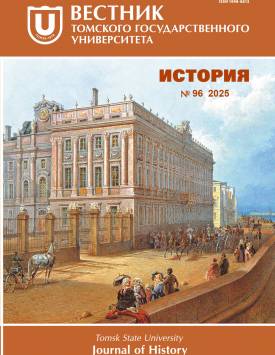International approaches to the study of Russian soft power: an analysis of modern research
The topic of Russian propaganda holds a central place in the modern international academic discourse, particularly after 2014 and the onset of the Special Military Operation in 2022. At the same time, the Russian academic landscape still offers relatively few systematic studies focused on how Western researchers analyze the country’s information strategies. Yet it is precisely in Western contexts where a stable narrative has emerged: Russian soft power is increasingly perceived not as a tool of public diplomacy, but as a threat to democratic order and information sovereignty. Contemporary Western scholars describe Russian propaganda as a complex, adaptive phenomenon combining the legacy of Soviet “active measures” with the technological capabilities of the digital age. Key areas of focus include visual narratives, algorithmic manipulation, and the use of platforms such as Telegram that allow a high degree of anonymity. Digital transformation is interpreted not as an auxiliary feature, but as a core element of Russia’s strategic communication aimed at constructing an alternative worldview. Researchers highlight the continuity between Sovietera influence techniques and current post-Soviet strategies. Practices such as discrediting opponents, staging leaks, using third-party dissemination (source laundering), and semantic reframing are still in use - adapted to the algorithmic logic of digital platforms. These tactics are difficult to detect and highly effective in the fragmented landscape of modern media consumption. Additionally, scholars point to the ideological layer of Russia’s communication efforts, notably the rhetoric of “civilizational resistance,” historical archetypes, and the use of mythologized symbols within the framework of “geopolitical mysticism.” Analyzing Western academic literature on Russian propaganda is valuable not only for scholarly purposes, but also for practical insight. It helps to understand how Russian influence is perceived abroad, which techniques are seen as most vulnerable or effective, and what strategies might be employed in return. Such knowledge is crucial for developing resilient communication policies and for navigating the complex landscape of global narrative competition. The author declares no conflicts of interests.
Keywords
Russian soft power, digital media, visual narratives, information operations, new mediaAuthors
| Name | Organization | |
| Griva Ivan P. | Tomsk State University | Hryvaivan19@mail.ru |
References

International approaches to the study of Russian soft power: an analysis of modern research | Tomsk State University Journal of History. 2025. № 96. DOI: 10.17223/19988613/96/1
